Proton Wallet: Privacy & Self Custody
Self-custody your Bitcoin in a wallet by one of the world's leading privacy firms.
If you aren’t a medium member, you can read with no paywall via substack
If you’re in the crypto space it probably didn’t take too long for you to hear the phrase “not your keys, not your crypto” in reference to leaving your crypto assets in the custody of centralised exchanges. The truth though, is that self custody can be a difficult concept to deal with for beginners who are new to the space. And while self-custody certainly is king, there’s no denying that going down this path entails taking on a significant amount of responsibility for your digital assets.
So with that said, tools that streamline this process are vitally needed to simplify the onboarding process and allow newcomers to start their self-custody journey with confidence. In today's article, we’ll be looking at one of these tools by reviewing the new Bitcoin wallet by Proton Privacy. It’s got all the typical features of a self-custody wallet with a few interesting twists.
Why Proton?
One of the things to consider when looking at self-custody is the reputation of the provider whose tools you might be considering using. It doesn’t matter if you’re dealing with a cold storage hardware wallet or a browser-based hot wallet, the reality is that in today's world who exactly provides the service should typically be assessed as well. This means that open-source is usually good, while unreviewed propriatory products might come with some additional risk.
You won’t have to spend much time in information or cyber security circles to start hearing about Proton Privacy though. With a large range of privacy-focused and open-source tools including VPNs, Email and a password manager, Proton has established trust with its client base and has a reputation for advocating for privacy in today's digital age.
While you might have heard of Proton before, one thing that is lesser known is that Proton in part, owes its survival to the evolution of blockchain tech and Bitcoin. The subject of encryption has always come with a certain amount of controversy over the years. Decried by governments and individuals as unneeded or advantageous for the criminal world, the reality is that encryption is an integral part of what makes our digital world work so effectively.
When it comes to opening up privacy focused tools to the masses though, things can get heated and in 2014 when Proton was first launched things got hot quickly. In fact things were so spicy that Paypal originally froze a significant chunk ($275,000) of Proton’s campaign money, putting the whole operation at risk. After a broad public campaign on social media in protest, the funds were unfrozen and the rest as they say, is history.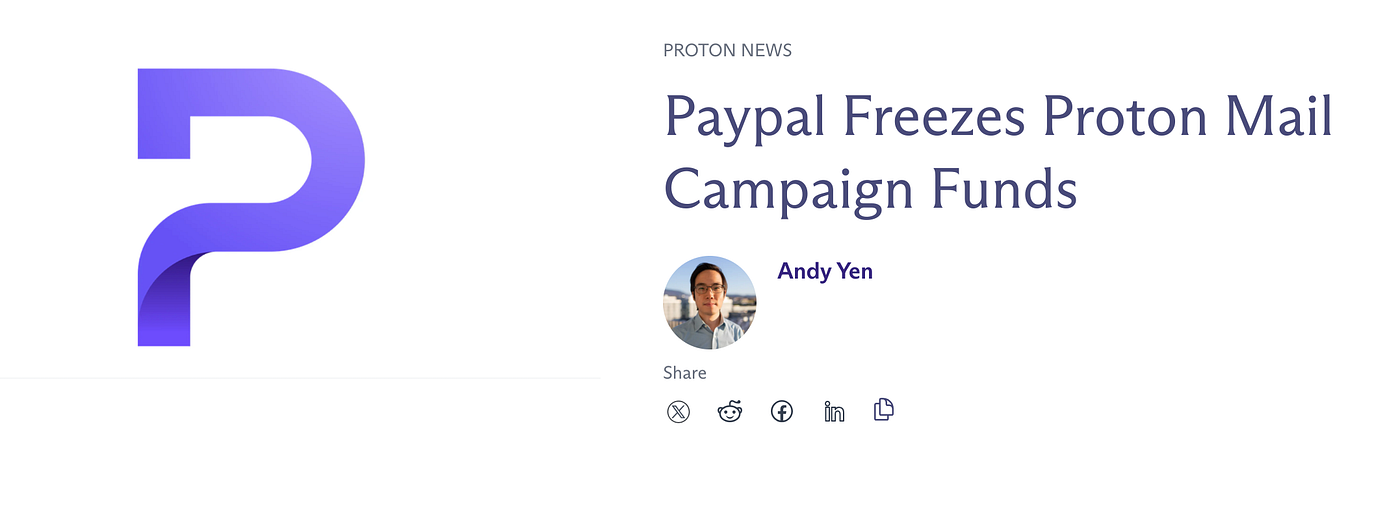
One lasting consequence of this however was that Proton remained aware of the role that cryptocurrency played in navigating this issue. As such, it’s fair to say that they have a significant interest in supporting blockchain technology and the new Proton wallet is simply a natural evolution of this approach.
The Wallet
At this stage, the wallet is in the early beta release stages. While it’s fully functional, at this stage gaining access is via invite only and the only cryptocurrency supported is Bitcoin. While we can expect this to evolve over time to become more feature rich, there’s still plenty to explore in the meantime. With a clean and simple interface and the ability to receive Bitcoin to your Proton Mail address, there’s still plenty of incentive to get onboard while it’s in the early stages.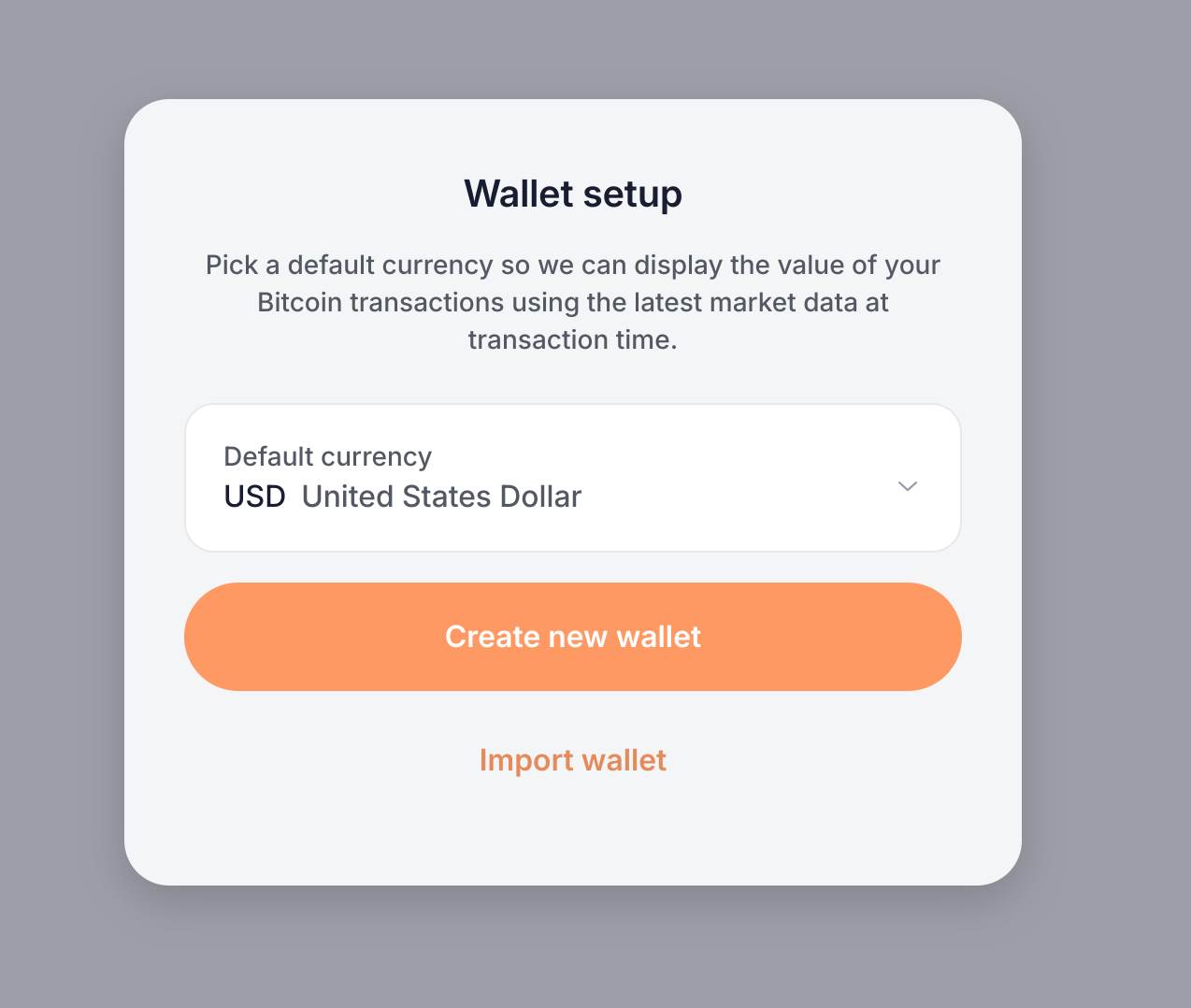
Setup is extremely simple. First, you’ll onboard via the your browser, where you’ll gain access to the wallets interface. At this point, you’ll be able to select your native currency and decide on either making a fresh wallet or importing an existing wallet that you might already have. However, there’s one important point to consider first. Given self-custody means taking responsibility for your own assets, you must backup both your Proton Mail & Proton Wallet seedphrase to ensure you can always recover your assets when needed. This is a non-negiotable part of the self custody process.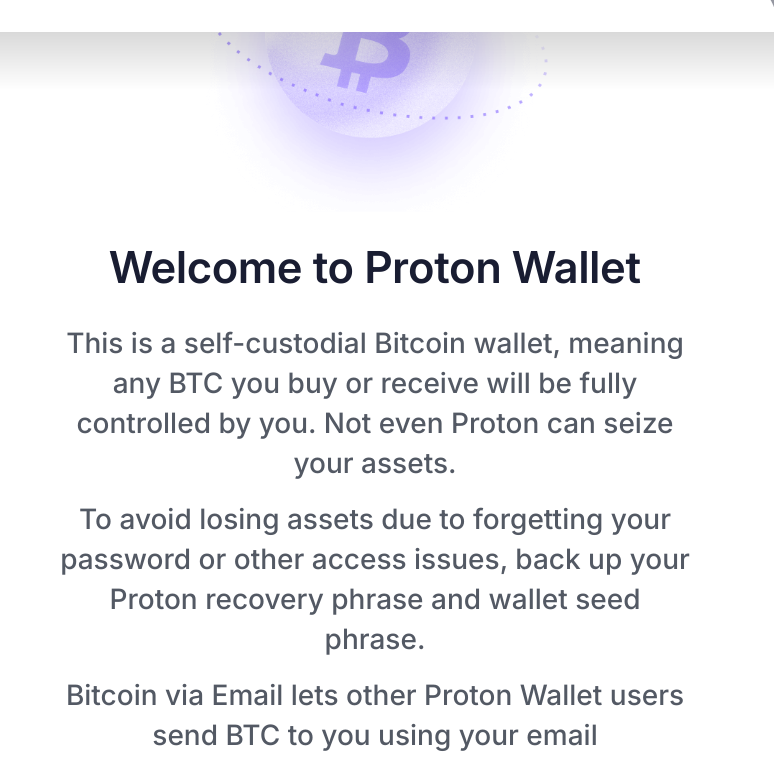
Once you’ve completed this process and finished the setup, you’ll be taken to your dashboard. Here you’ll be able to see any visible assets and transact as needed.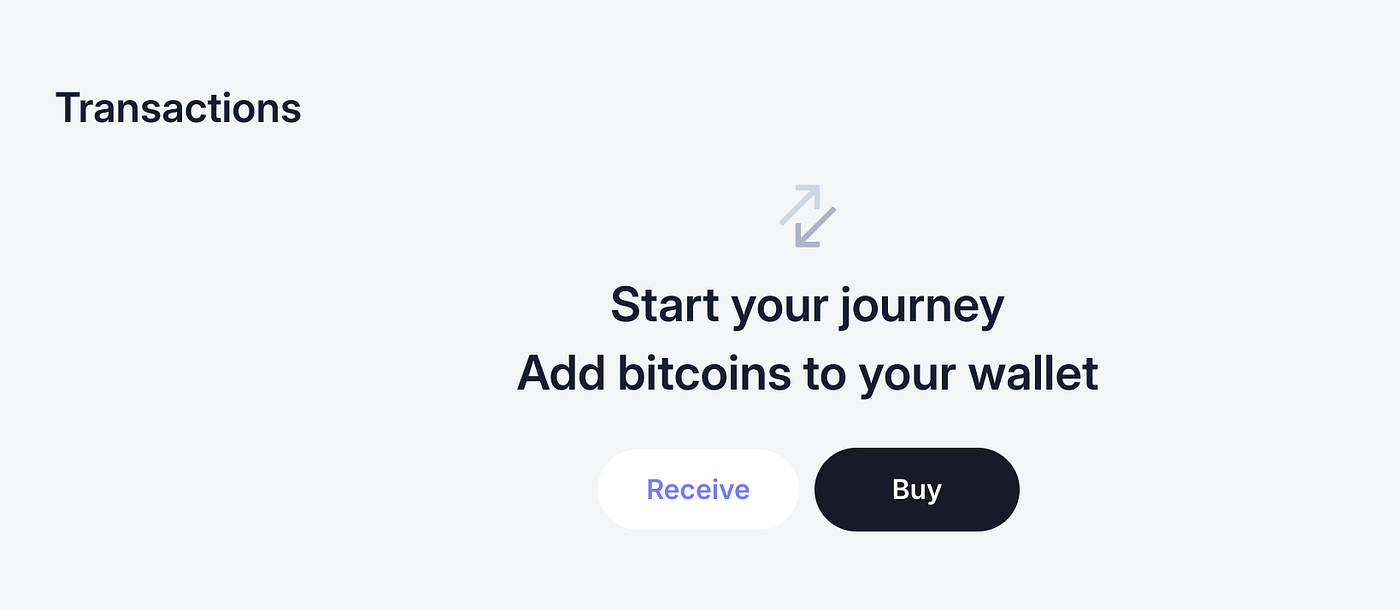
You might have noticed that there’s a Buy tab that’s visible on the dashboard. This is because Proton has partnered with both Ramp & Banxa to streamline the purchasing process. If you don’t currently have any BTC and are interested in obtaining some, you’ll find the process to be pretty straightforward. All you’ll need to do select buy, input your currency and country and then finalise your purchase. Easy as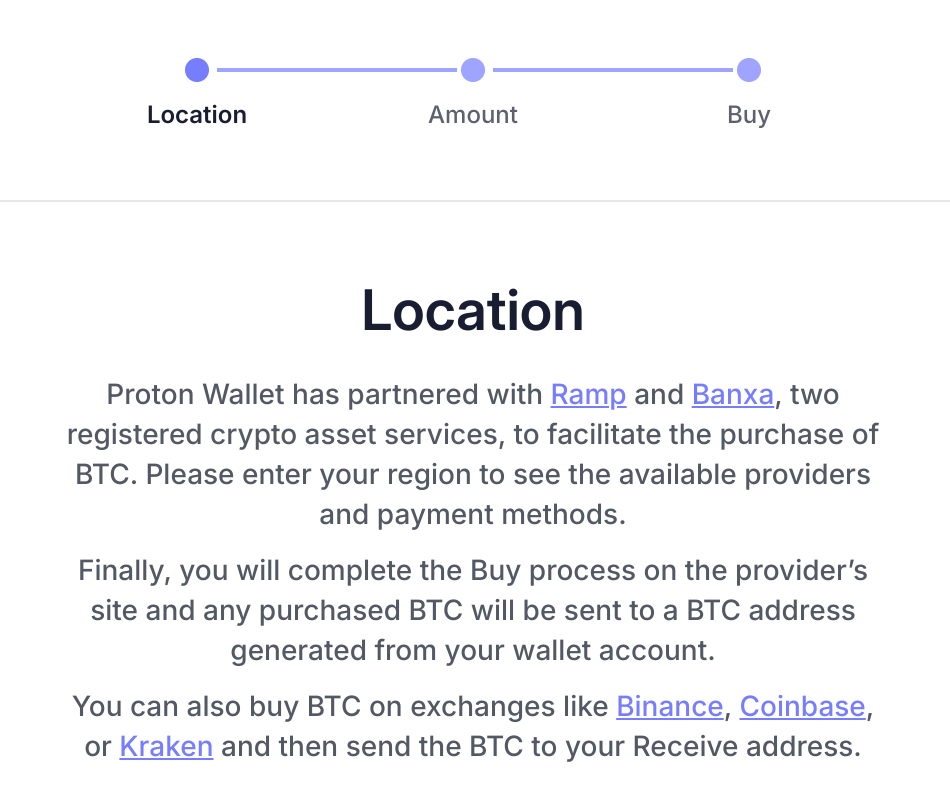
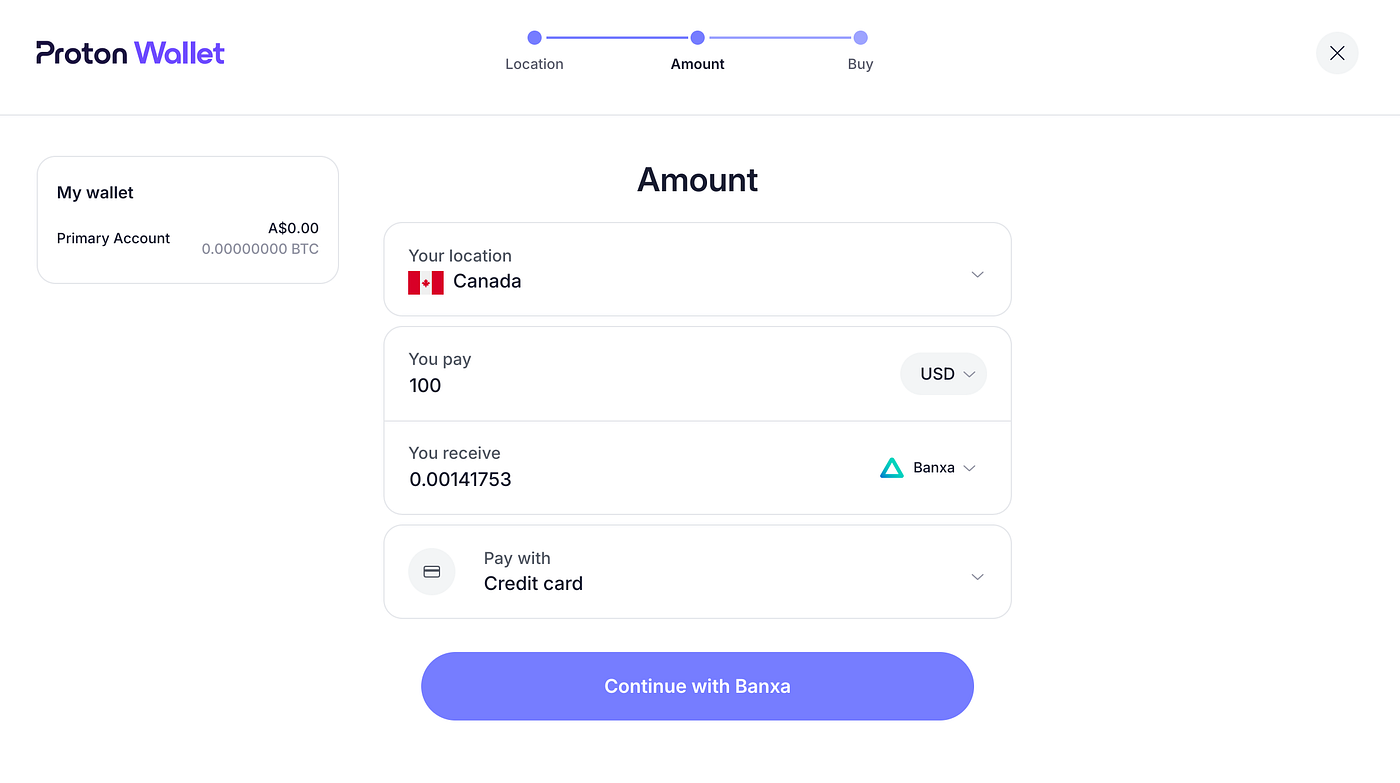
If you already hold BTC and are simply looking to move some of your assets into a different wallet then you’ll find this process pretty simple as well. However one useful feature that we did notice that should be popular was the ability to generate bitcoin receive addresses via the dashboard. Which is a great to have, especially considering the early stages of development.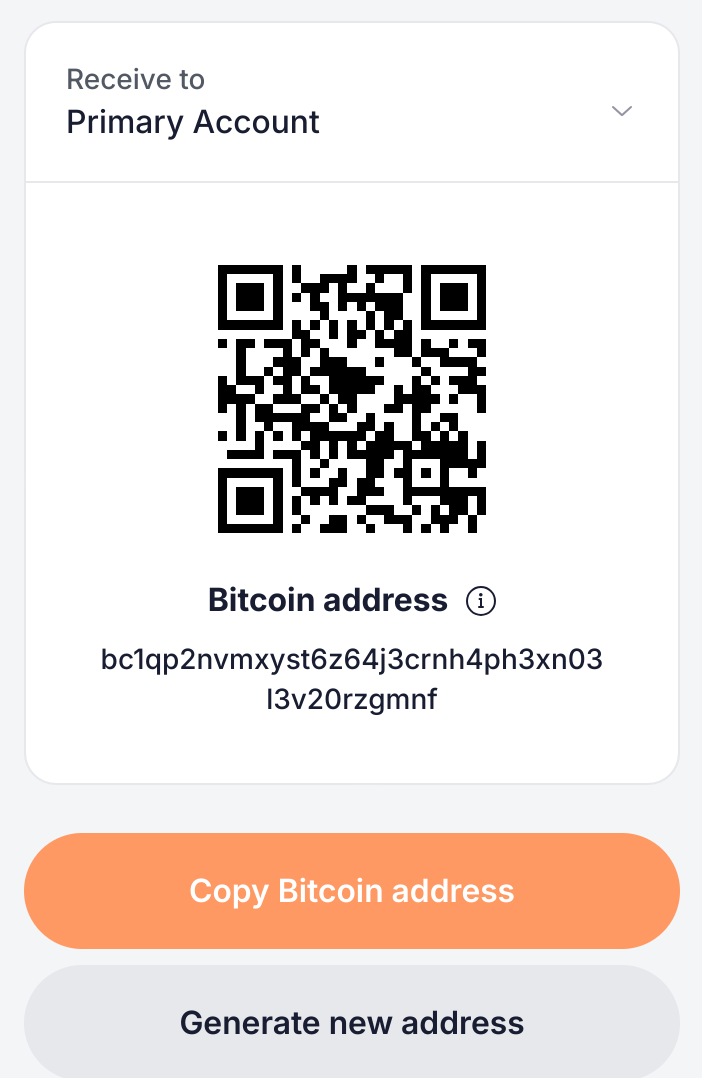
Despite the early stages of the development cycle, the Proton wallet is still a great choice if you’re looking at managing your BTC assets more closely and we’re definitely looking forward to seeing what features Proton are aiming to add next. Ethereum or Solana compatibility anyone?
Gain Early Access
As we mentioned earlier, access to the current program is limited to invite only. Firstly a big thank you goes to Aaron (thephdude) on Twitter / X for arranging an invite so we could compile this review properly. Check him out on X.
The best bit is now though because we’ve also got some invites to share for willing participants as well. They are limited though, so you’ll need to get in quick if you want one.
To get one you’ll need to drop a comment on our socials to register your interest, and retweet our pinned post about Proton Wallet. On 6th of Aug 2024, we’ll select three posters at random to receive an onboarding invite.
Have you already tried Proton Wallet? What do you use to self-custody your crypto assets? Let us know in the comments.
Medium has recently made some algorithm changes to improve the discoverability of articles like this one. These changes are designed to ensure that high-quality content reaches a wider audience, and your engagement plays a crucial role in making that happen.
If you found this article insightful, informative, or entertaining, we kindly encourage you to show your support. Clapping for this article not only lets the author know that their work is appreciated but also helps boost its visibility to others who might benefit from it.
🌟 Enjoyed this article? Join the community! 🌟
📢 Join our OSINT Telegram channel for exclusive updates or
📢 Follow our crypto Telegram for the latest giveaways
🐦 Follow us on Twitter and
🟦 We’re now on Bluesky!
🔗 Articles we think you’ll like:
- What The Tech?! Rocket Engines
- OSINT Investigators Guide to Self Care & Resilience
✉️ Want more content like this? Sign up for email updates




























































